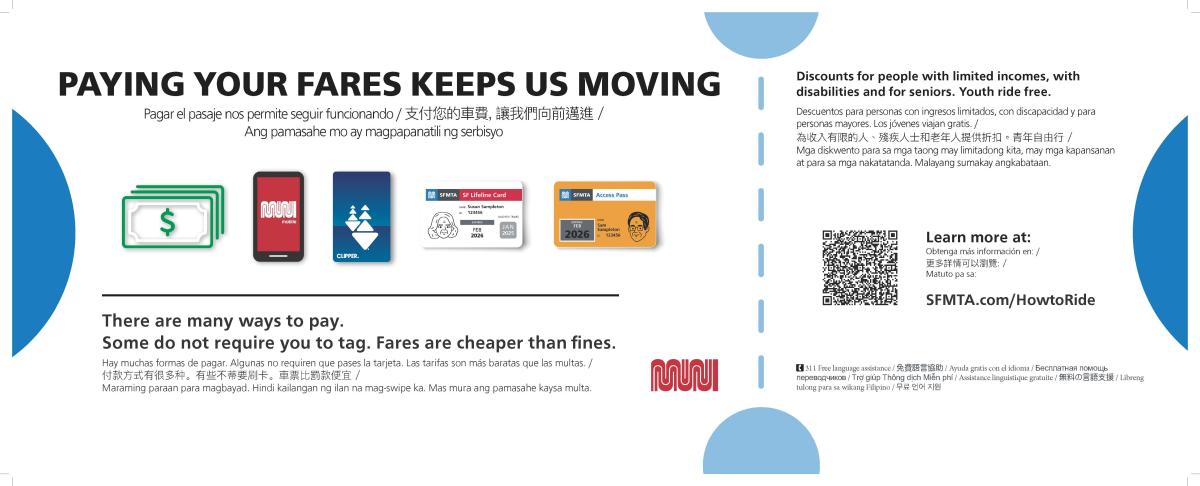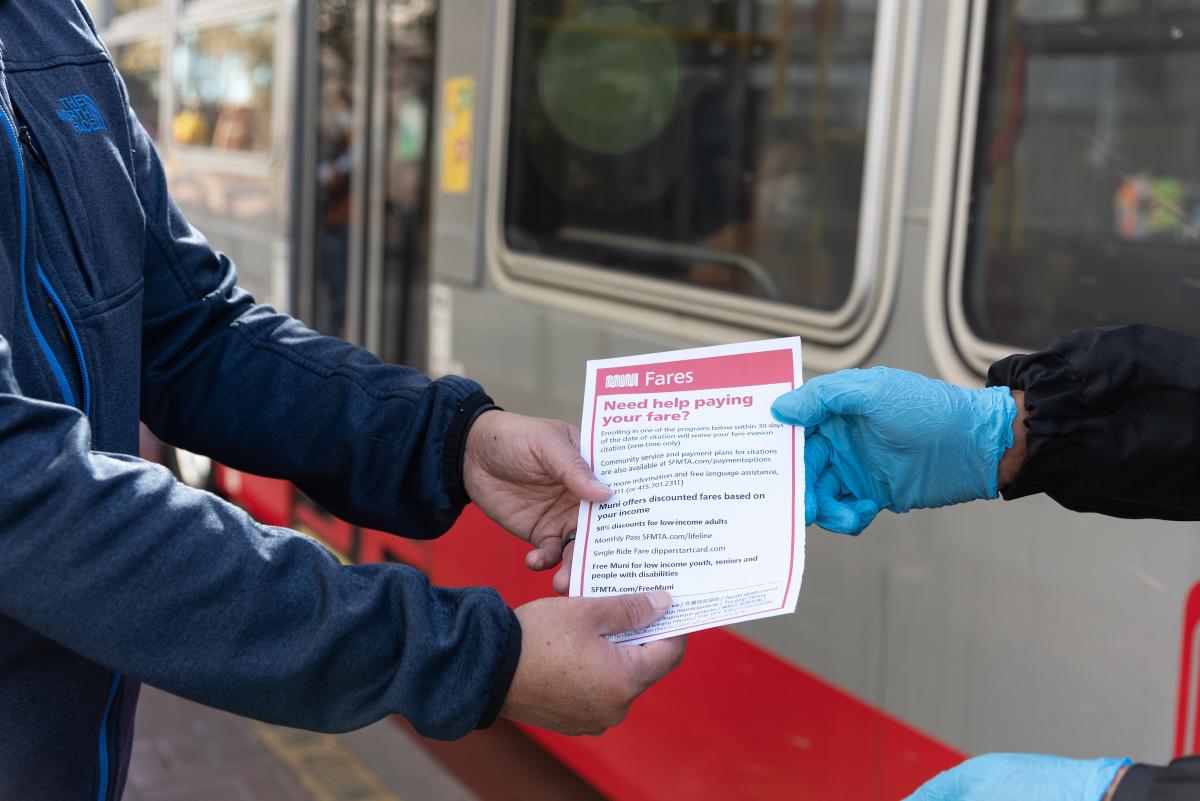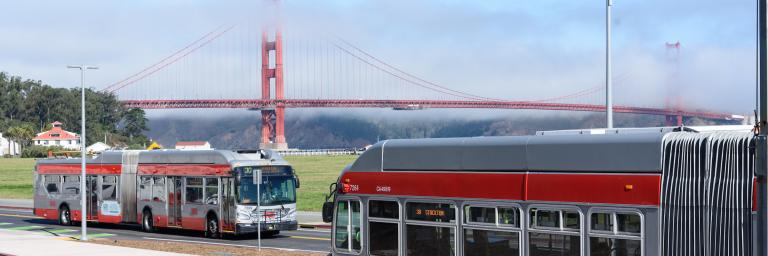The SFMTA has launched a Fare Share campaign to remind Muni riders to remember to pay their fares on buses and Muni Metro. This Fare Share campaign will remind the ridership and the public about paying fares by:
- Highlighting the many ways to pay
- Reminding riders that some popular ways of paying do not require tagging
- Demonstrating that paying for every ride on Muni is important
Riders tell us that visible fare evasion is a serious concern. Although in 2024 riders gave Muni its highest satisfaction rating ever, seeing people board and not pay affects the level of their support. Our own estimates show that close to 20% of riders do not pay their fare. This is an increase from 2019 when 12% evaded their fares. Given Muni's near-term budget deficit, bringing down the level of fare evasion is one of the SFMTA's top priorities.
Growing the Fare Inspector Team
In April 2024, the SFMTA Board of Directors prioritized growing the Transit Fare Inspector team as part of our two-year budget for Fiscal Year (FY) 24-25 and FY 25-26. Based on post-pandemic trends and feedback from the community regarding fare evasion, we allocated funds to hire thirty-five (35) new inspectors. As we continue to hire, fare inspectors will be more visible throughout the system. In September 2024, the number of inspections doubled since the same period in 2023, a major milestone for our new Fare Compliance efforts. Our goal is to keep increasing the number of inspections into 2025. Seeing fare inspectors while riding Muni will become a more familiar experience.
Fare inspectors are trained to educate riders about the ways they can pay their fares. If a rider has no way to pay the fare, inspectors provide information about Muni's free and reduced fare programs like Clipper START, Lifeline and Access Pass programs. Inspectors are trained in de-escalation techniques. They use this training to address difficult situations. They also work closely with other teams to make Muni safe systemwide.
Fare inspectors are good people with a tough job. They are here to ensure the system runs smoothly and to improve the rider experience. To get a better sense of a Day in the Life of a Fare Inspector and why they love what they do, check out the videos above.

Paying Your Fares Keeps Us Moving
The Fare Share campaign is designed to assist the larger fare inspector team in their daily course of work. Informational cards (like the one above) are installed on buses and Muni Metro. These cards show some of the more popular ways to pay fares. They reinforce the message that not all forms of payment require tagging a fare box. This important point dispels the myth that fare evasion seems to be everywhere. Again, our estimates show most riders (80%) pay their fares.
On our social media, we're featuring videos explaining our fares system. In the videos, we stress that riders need to prepare for their ride and that being prepared means having your fare ready. Figuring out which form of fare payment you use before you ride is an important part of trip planning.
Our How to Ride Muni: The Quick Start Guide is a great resource to help riders, new or experienced, plan for their Muni ride.
Free and Reduced Fare Programs
In addition to the above efforts, we continue to work with community partners to raise awareness about our free and reduced fare programs. Those who qualify for these programs should get the benefits they need. The Lifeline and Access Passes are Muni's monthly passes for people with low or no incomes. The Clipper START program provides a single-ride discount for people for those with low incomes, without needing to buy a monthly pass. It is also perfect for people that use regional transit agencies to get to their destination. Clipper START provides discounts to BART, AC Transit, and everywhere the Clipper card is used to pay fares. Important to note: if a rider qualifies and applies for Lifeline, Access or Clipper START within 30 days of receiving a transit citation, they can have the citation dismissed. Visit SFMTA.com/fares for detailed information on all of Muni's fares and how to apply for discount programs.
Our interest in addressing fare evasion is focused on riders that have the ability to pay; not to punish riders who cannot.

Upcoming Fiscal Challenges
The SFMTA is facing serious fiscal challenges in the near future. Federal and state relief funds are ending in 2026. We need to find local solutions to funding transit in San Francisco. One part of the solution is to ensure that riders pay their fare on every trip. Fare payment is an essential part of keeping Muni moving. Paying the fare is a requirement, but it's more than that. When riders pay their fare, they support Muni service. The fare represents your part to keep the system running.
According to our 2024 survey, rider satisfaction is at an all-time high. Riders are not avoiding fares because they view Muni service as inadequate, and this is a good thing. It means with the right combination of actions and message, we can succeed in bringing down the rate of fare evasion. When asked specifically about avoiding fare payments, riders were generally unaware of the consequences of the action. With the upcoming deficits, addressing fare evasion is critical to reducing financial losses in fare revenue.
Continue to check out this page for updates on the SFMTA's Fare Compliance efforts.
